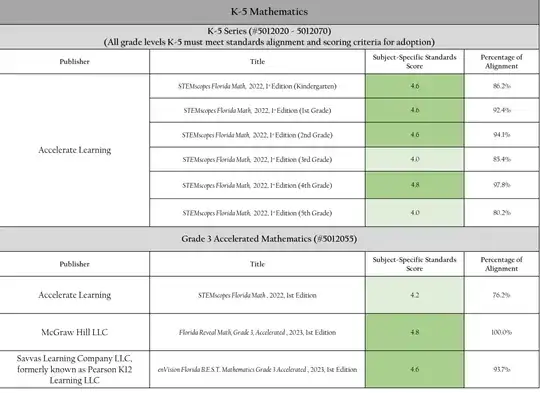This article alleges that the only books approved by Governor Ron DeSantis and the Florida Department of Education were published by "Accelerate Learning", a company which happens to have employed fellow Republican Governor Glen Youngkin:
The Carlyle Group, a global investment firm, acquired Accelerate Learning on Dec. 20, 2018, according to the firm's website.
During that time, Virginia Gov. Glenn Youngkin was the co-CEO of the firm. After 25 years with the company, Youngkin resigned in 2020 to run for office in Virginia.
Is it true that Accelerate Learning is now the only permitted supplier of K-5 Maths textbooks in Florida?

